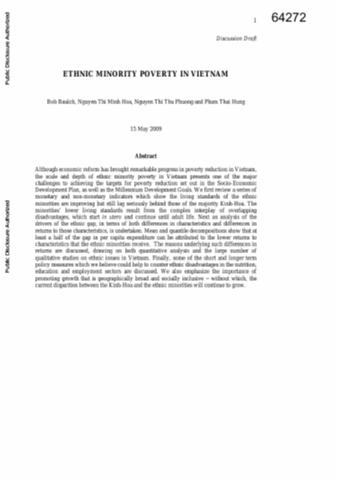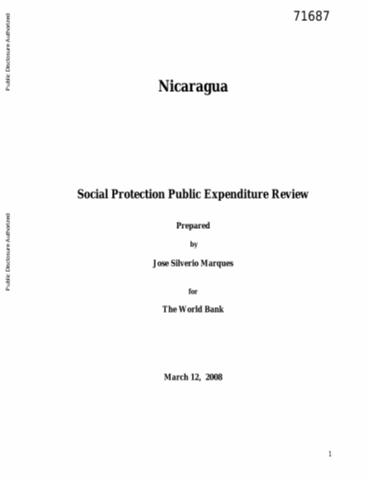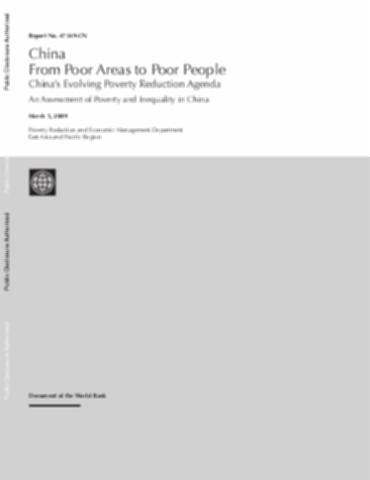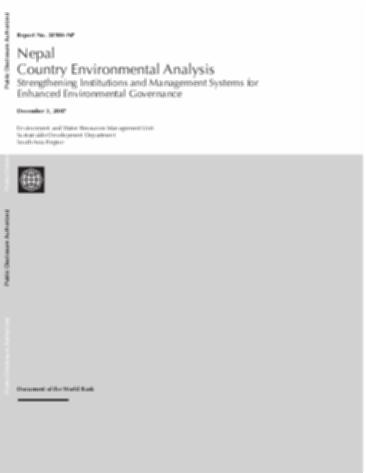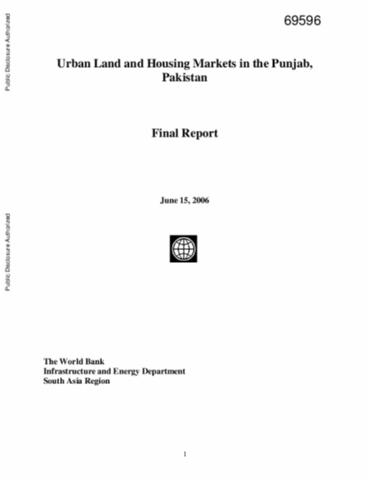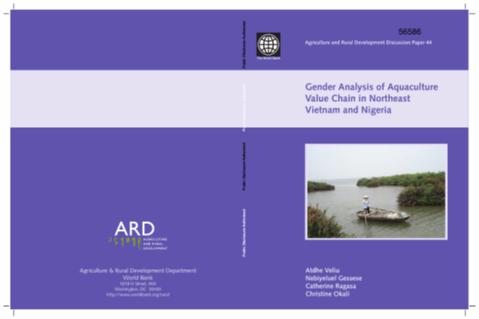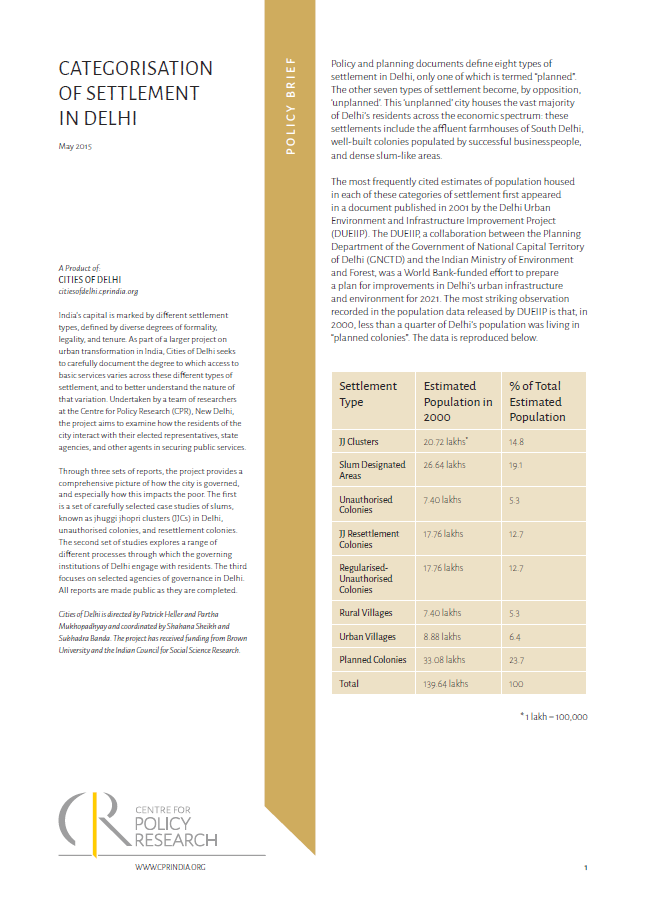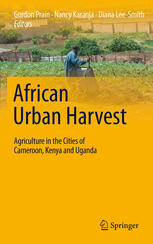Ethnic Minority Poverty in Vietnam
Although economic reform has brought remarkable progress in poverty reduction in Vietnam, the scale and depth of ethnic minority poverty in Vietnam presents one of the major challenges to achieving the targets for poverty reduction set out in the Socio-Economic Development Plan, as well as the millennium development goals. The authors first review a series of monetary and non-monetary indicators which show the living standards of the ethnic minorities are improving but still lag seriously behind those of the majority Kinh-Hoa.

